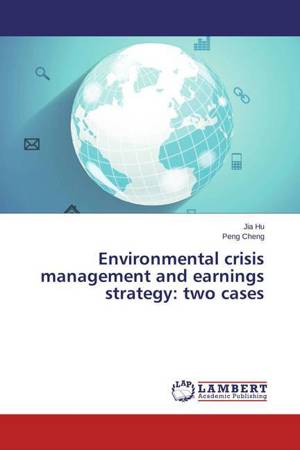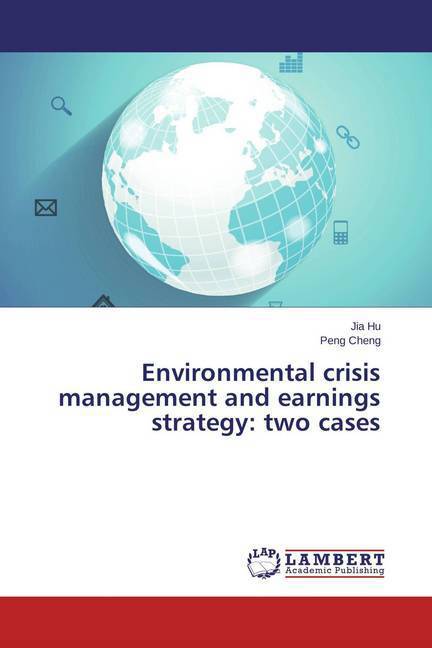
- Afhalen na 1 uur in een winkel met voorraad
- Gratis thuislevering in België vanaf € 30
- Ruim aanbod met 7 miljoen producten
- Afhalen na 1 uur in een winkel met voorraad
- Gratis thuislevering in België vanaf € 30
- Ruim aanbod met 7 miljoen producten
Zoeken
Environmental crisis management and earnings strategy
two cases
Hu Jia, Cheng Peng
Paperback | Engels
€ 39,45
+ 78 punten
Omschrijving
This paper examines the accounting choice in a response to a major environmental crisis by looking at BP (British Petroleum) and Zijin Mining (a mining firm listed on Shanghai Stock Exchange, ZM hereafter), both of which face an environmental crisis at a similar level in 2010. The results show that BP may overly recognize crisis-related expenses in the year of crisis, suggesting that BP is likely to use the income-decreasing earnings management (e.g., big bath accounting etc.) as a response to the crisis. Then, BP partly reverses the expenses and pushes up reported earnings in the subsequent year. On the contrary, ZM's operating performance (sales growth & profitability) and stock performance seem to be superior subsequent to the crisis. Importantly, we find that the firm uses income-increasing accruals management to boost reported earnings. Further data investigation indicates that several specific accruals have been inflated in the year of crisis: i.e., provisions for asset impairment, accounts receivables and inventories. In addition, a few real earnings management items have been examined, but the findings are mixed.
Specificaties
Betrokkenen
- Auteur(s):
- Uitgeverij:
Inhoud
- Aantal bladzijden:
- 72
- Taal:
- Engels
Eigenschappen
- Productcode (EAN):
- 9783659613067
- Verschijningsdatum:
- 15/10/2014
- Uitvoering:
- Paperback
- Formaat:
- Trade paperback (VS)
- Afmetingen:
- 152 mm x 229 mm
- Gewicht:
- 117 g

Alleen bij Standaard Boekhandel
+ 78 punten op je klantenkaart van Standaard Boekhandel
Beoordelingen
We publiceren alleen reviews die voldoen aan de voorwaarden voor reviews. Bekijk onze voorwaarden voor reviews.











